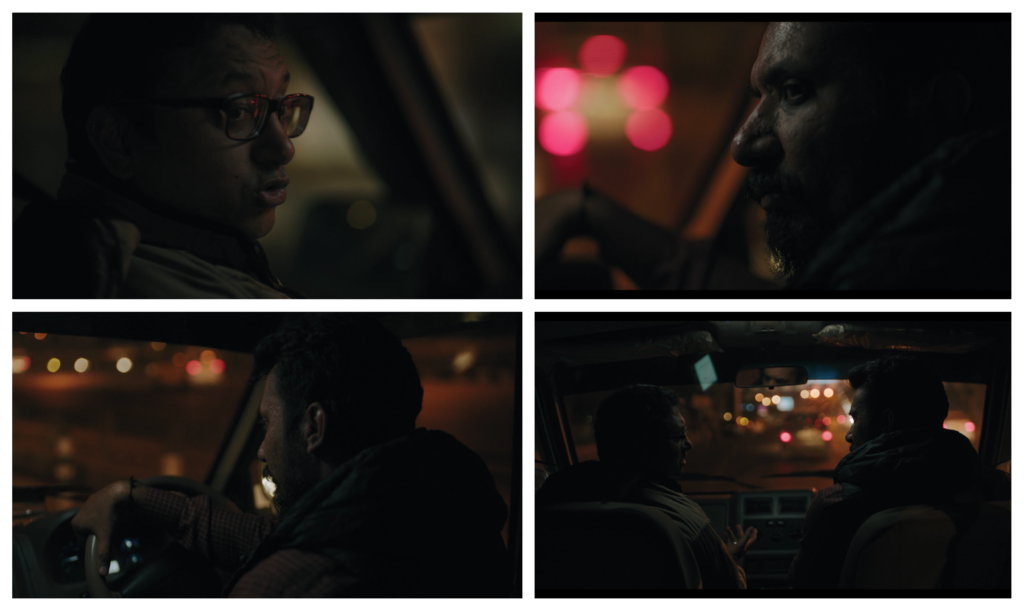A heinous crime has taken place in the capital city of New Delhi, a young woman has been barbarically violated and her boyfriend has escaped with some injuries right in the heart of a bustling metro. It doesn’t take time for the first responders to comprehend the sensitivity of this brutal act which is perpetrated by 6 disgusting individuals in a moving bus. One of the challenges for DCP Vartika Chaturvedi (a brilliant Shefali Shah) is to assemble a task force already on the brink of breakdown from a paucity of funds and lack of infrastructure to a shortage of manpower, to deal with the situation. In all their efforts to apprehend the criminals at the earliest, the law enforcement officers find themselves in a vicious tug of war with both the enraged public, a biased media and some politicians who would walk any length to fix the blame squarely on the department and the “security lapses”. That the police force serves its citizenry diligently and with the utmost integrity to curb anti-social activities despite their unspeakable conditions is part of the narrative of Netflix’s newest original TV-series called Delhi Crime. The storytelling has such truthfulness and bitterness to it that I couldn’t watch it without wiping tears. Thankfully, unlike the other police drama, the unfortunate Powder, the makers have confirmed that Delhi Crime will be an anthology series with the same characters.
In all this, as a cat-and-mouse game is unravelling, a team headed by an investigator named Sudhir Kumar (Gopal Dutt Tiwari) is on its way to the nab one of the culprits in Rajasthan, he’s having an interesting conversation in the vehicle on the implications of a diverse Indian society. Although divided by class, it is at the pinnacle of global economic development on one hand but fighting abject deprivation and illiteracy on the other. His profound explanation for the justification of horrific crimes against females signals a larger implication for an entire generation of Indians to come. Read on.

ड्राइवर: सर, क्या आप ने इससे पहले ऐसे कभी कुछ देखा है?
सुधीर कुमार: अरे बहुत कुछ देखा है.
ड्राइवर: नहीं Sir. मतलब, हां हां, crimes तो बोहोत है पर ऐसा नहीं कोई किसी के साथ ऐसे कैसे कर सकता है ?
सुधीर कुमार: Simple है यार. Economics है. अमीर और गरीब के बीच का फर्क जितना बढ़ेगा crime भी उतना ही बढ़ेगा। क्या है, अमीरों की वजह से अब काफी पैसा आ गया है society में, लेकिन वह गरीबों तक पोहोचता नहीं है। तो वह छीनने की कोशिश करते है, जिसकी वजह से अनबन पैदा होती है। Normal है, सारी दुनिया में यही हो रहा है. ऊपर से हमारे यहां तो बोहोत ज्यादा अनपढ़ youth है। Sex Education है नहीं लेकिन Internet पे free porn है, जो उनके मासूम दिमागो पर असर डालते है, उन्हें समझ नहीं आता क्या करे। वह औरत को एक चीज़ की तरह देखने लगते है और चाहते है वह सब उनकी ज़िन्दगी में भी हो। नहीं मिलता तो छीनने की कोशिश करते है, बिना अंजाम की परवा किये। खोने के लिए वैसे भी कुछ नहीं उनके पास।
ड्राइवर: Simple है…. hmmm…. और Sir, आप को यह सब कैसे पता?
सुधीर कुमार: हर दो हफ्ते में घर जाता हूँ ना, काफी लम्बी drive है, तो सोचने के लिए काफी टाइम होता है मेरे पास।
Driver: Sir, have you ever seen anything like this before?
Sudhir Kumar: Seen too many like this.
Driver: No…I mean, yeah, there are many violent crimes, but not like this. How can someone do this to another person?
Sudhir Kumar: It’s simple, it’s economics. The bigger the gap between the rich and poor, the more the crimes. You see, the rich have brought more money into society but it’s not reaching the poor, so they try and take it. The result is more strife in society. It’s normal, it’s happening all over the world. Add to that the explosion of uneducated youth here, they have no sex education but get free porn online…which affects their adolescent brains. They don’t know how to interpret it. They objectify women and wish they could have that in their lives. If they don’t get it, they take it, with no regard for the consequences. After all, they have nothing to lose.
Driver: It’s simple…hmmm…and how do you know all this, Sir?
Sudhir Kumar: Every two weeks, I go home, it’s a long drive, I get a lot of time to think.

